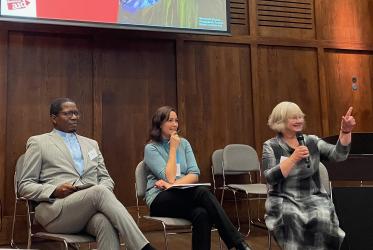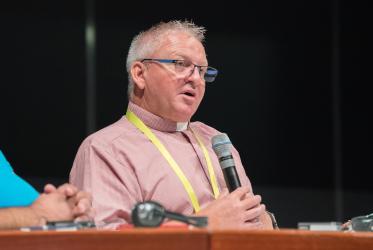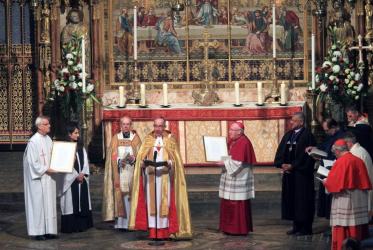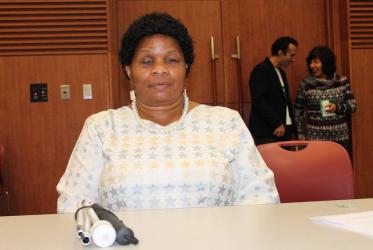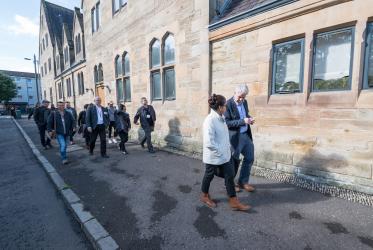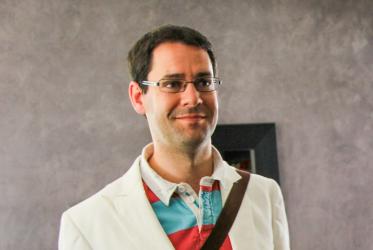Displaying 1 - 20 of 38
21 November 2023
WCC podcast deals with death and dying
15 December 2020
In a COVID-stricken world, “everyone is important”
23 October 2020
Fr Alexi - a peacemaker in Syria
21 December 2018
#WCC70: Children in the Ecumenical Movement
20 December 2018
Westminster Abbey hosts service marking Reformation anniversary
01 November 2017
Digitizing of Faith and Order Papers underway
23 July 2017
G7 must address famine
22 May 2017
